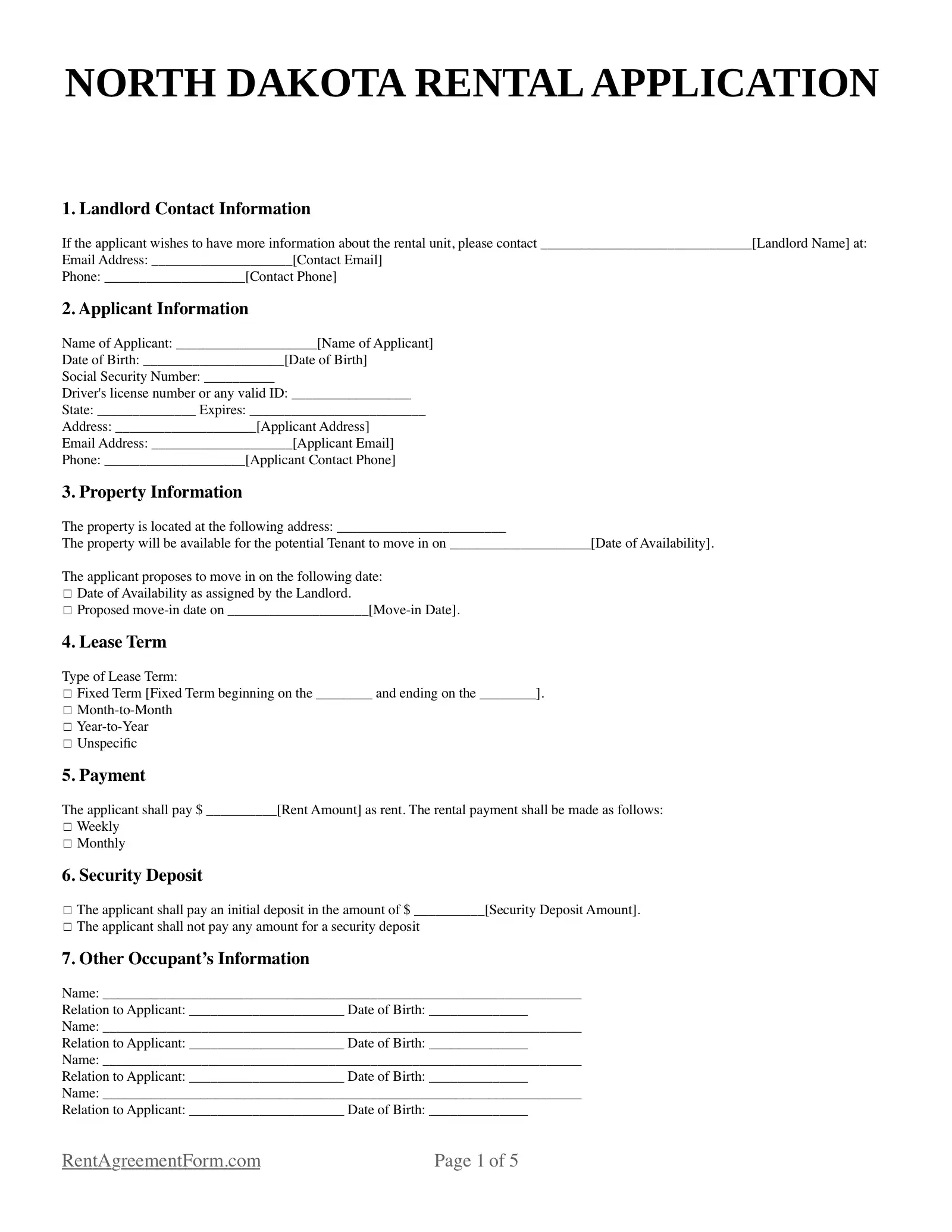North Dakota Rental Application Form
Looking to rent residential property in North Dakota? Before you start talking to your landlord about the lease, you’ll need to submit a North Dakota rental application form to signify your interest as a tenant. The rental application form helps with the assessment of a potential tenant’s background, income, and criminal history.
While the approval of your petition isn’t guaranteed, the Federal Fair Housing Act protects potential tenants from discrimination. Though the application requires sensitive information from applicants, property owners cannot reject it based on an individual’s:
- Color/race
- Nationality
- Religion
- Sex
- Disability
- Familial status (with or without children)
The state also protects applicants from being discriminated against due to age, marital status, and source of income. Landlords cannot ask for these since they should not be factors when deciding on a tenant.
However, there are exceptions under the Fair Housing laws. These include:
- Familial status (for owner-occupied properties)
- Age (for age-specific communities)
- Owner-occupied properties (if the owner lives in one unit of a multiple-unit property)
- Religion (if the property is owned by a religious organization)
Landlords must also obtain written consent from the applicant so that they can run a credit check, eviction record, or background check. This consent is separate from the rental application and should be signed by the applicant.

North Dakota Rental Application Fees
In North Dakota, there is no limit on the maximum rental application fee that a tenant should pay the landlord. However, most property owners do not charge more than the average out-of-pocket expenses necessary for background checks and references.
The application fee is non-refundable and is considered part of the tenant application process. If the application is approved, the landlord could then ask the tenant for additional fees which include the security deposit.
Security Deposits for North Dakota Rental Applications
Landlords in North Dakota could require tenants to pay a security deposit that is equivalent to one month’s rent. If the tenant has pets, the owner may add additional charges as long as they don’t exceed $2,500 or the equivalent of two months’ rent. For tenants with felony convictions, landlords can also mandate a deposit for two months instead of just one.
Under North Dakota law, the security deposit should be deposited in a savings account that is federally insured. Upon the termination of the lease, the security deposit should be returned to the lessee.
However, the deposit and its accrued interest can also be used to pay for any damages caused by the tenant, unpaid rent, or for cleaning or repairs that should have been the tenant’s responsibility (North Dakota Century Code § 47-16-07.1).
Additional deposits due to pet ownership can only be used for damages caused by the tenant’s pet. If the damage costs more than the security deposit, the tenant is liable for paying the difference. The pet deposit can also be used to cover rent as long as the landlord agrees.